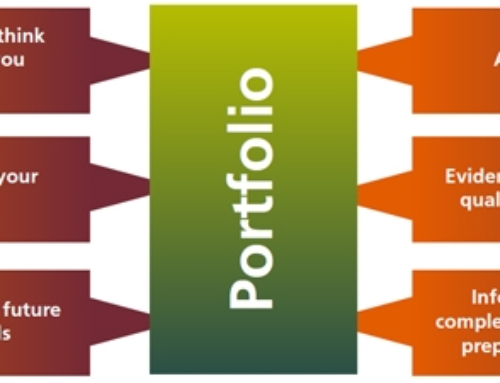What are the implications if LinkedIn or other entities like Elance-oDesk become marketplaces that enable individuals to directly provide value for and from each other, rather than intermediated through the infrastructure of a corporation? If you are now the offering, it is no longer about the jobs you have held beyond the evidence that experience provides of your capabilities—especially with rapidly changing social, environmental, technological, and economic conditions. Your past positions, earned degrees, and expectations do not directly correlate to or guarantee your future value or success.
So, what matters?
The Start-Up of You and Business Model You (both books I highly recommend) encourage you to think of yourself as an offering. I frame this as three core things to think about: your messaging (digital exhaust), your network, and your competitive advantage.
Curate Your Digital Exhaust: This isn’t news; almost every social media interaction leaves a trace and a potential imprint. Efforts to quantify your social media influence and social capital by Klout, Kred, and PeerIndex measure the degree that your posts create engagement (likes, shares, comments). The field of social capital analytics is in its infancy, but checking here to understand how you measure up is a good start. Looking at your followers on LinkedIn and through PeerIndex analytics of your Twitter followers can give you a good sense of the company you are keeping.
Cultivate Your Network: As Ms. Gray states, this is the central consideration as your network can offer two types of value: bonding capital (connections to former colleagues, clients, business partners, or classmates) or bridging capital (access to those on the exterior of network 2 or 3 degree connections). Cultivation is an intentional term here, as cultivating your network is a relational rather than a transactional process in which your focus should always be on adding value to or co-creating value with your network. If you tap your network for requests without adding value, your network will retract. I think of my network as knowledge donors and treat them with the same regard that development people treat potential financial donors—how am I building their brand? Network value is created through nurturing. A recent article in Harvard Business Review, The Network Secrets of Great Change Agents, suggests that the shape of your network may be key to your opportunity, since cohesive networks have access to each other and do not need you as an intermediary while bridge networks depend on you as a central hub to connect diverse people. Check theshape and structure of your Linkedin network via visual map here.
Craft Your Competitive Advantage: In The Start-Up of You, authors Reid Hoffman and Ben Casnocha frame your opportunity space or competitive advantage as one that comes at the intersection of your assets, your aspirations/values, and the market realities of the supply and demand for your talent.
Assets
Your assets are divided among the things you can passively monetize in both the traditional and now collaborative economy: money, stock, real estate, cars, tools, and assets you must actively engage in to monetize. The assets you must actively engage in to monetize, according to Barbara’s article, fall into two skill categories:
- Commodity Skills – personal tasks (TaskRabbit), local tour guide services (Vayable), dogsitting (DogVacay), household services (Handybook, Homejoy), caregivers (Care.com, UrbanSitter), mobile corporate gigs (Gigwalk)
- Proprietary Skills – chefs (Kitchensurfing, Munchery), tutors (WyzAnt), instructors (Skillshare), creators (Gumroad, etsy, CustomMade), freelancers (Elance-oDesk)
Values and Aspirations: Key to Engagement
Your values or aspirations are what drive you or make you feel engaged. A recent Gallup poll found that only 13% of workers feel engaged at work. There is a high correlation between engagement and productivity. As Elvis Villa stated in the most engaged comment on my most recent Jobs Are Over post, “as human beings we need to have some sort of continuity & stability in our lives to remain sane and emotionally engaged. Hopping from gig to gig & having income swing radically from day to day does eventually take its toll in the form of depression & mental illness. This visualization of Maslow’s hierarchy of needs applied to work engagement is spot on.
Market Realities
In a self-effacing moment, Bill Gates said that he was aware that he is lucky that he lives now at a time when the market values his skills. If he lived at a prior time when physical strength was most valued, he would have been at the bottom rather than the top of heap, if he survived at all. Market realities are unfortunate, but the supply and demand for your skills and talents, no matter how exceptional, educated, or trained, are what determine your ability to extract value from them. As Marc Andreessen, investor, entrepreneur, and founder of Netscape, says:
It doesn’t matter how hard you have worked or how passionate you are about an aspiration. If someone won’t pay you for your services in the career marketplace, it is going to be a long slog. You are not entitled to anything.
What Now, or What’s Next?
As the market economy continues to evolve and de-aggregate engagement from infrastructure, and as we seek more value from each other than via intermediated entities, your resume reflecting your past titles or positions you have held does not matter as much as what you can do. In this changing world of work we need to think of ourselves as value creation units or income generators. This offers the individual both more control and more responsibility regardless of whether you engage independently or through an entity. In my personal interest in the changing shape of higher education, I see far greater debate about the cost of and access to education than about what, ultimately, education prepares or doesn’t prepare students to do. While I agree with the importance of making education accessible and affordable to all, I do argue that the actual future value of this education in this emerging world of work is equally important.
————————————————————————————————————————-
Featured on:Careers: The Next Level





